Health
-

Break in the case for long COVID investigators
Research highlighting chronic inflammation opens path to treating illness that affects millions of Americans

-

The problem with the school smartphone debate
Study finds most districts already regulate devices. Is the real issue enforcement?

-

Just who gets a say at FDA public drug-approval hearings?
New research shows negative voices are relatively rare in drug approval hearings.
-

Your digital twin might save your life
AI, statistics offer new possibilities for personalized medicine
-

Time to legalize psychedelics?
Campus debate weighs therapeutic need vs. safety questions
-

How a toxin from the gut microbiome may help spark colorectal cancer
Findings suggest colibactin may be promising target for disease prevention

-
Q&A with Matthew Nock
Professor of Psychology Matthew Nock is the author of a new paper, co-authored with other Harvard faculty, which examines suicidal thoughts and behaviors among adolescents. In a recent conversation with the Gazette, Nock discussed his research, and the resources available at Harvard for students and others in the community.

-
Weighing the benefits
A report by Harvard researchers has concluded that the benefits of stopping smoking far exceed the risks from any associated weight gain.

-
Less stress, more living
The effects of stress on health, well-being, and even creativity were the focus of the Forum at Harvard School of Public Health (HSPH) this week.

-
Saving women during childbirth
Throughout history, more women have died in childbirth than men have died in battle, Mahmoud Fathalla, founder of the Safe Motherhood Initiative, told attendees at the recent Global Maternal Health Conference in Arusha, Tanzania, co-sponsored by Harvard School of Public Health’s Maternal Health Task Force (MHTF) and Management and Development for Health (MDH), a Tanzanian nonprofit.

-
Environment counts, Alzheimer’s research suggests
A new study led by Harvard Medical School Professor Dennis Selkoe provides specific, pre-clinical scientific evidence supporting the concept that prolonged and intensive stimulation by an enriched environment may have beneficial effects in delaying one of the key negative factors in Alzheimer’s disease.

-
Linking insulin to learning
Work led by Yun Zhang, associate professor of organismic and evolutionary biology, shows how the pathway of insulin and insulinlike peptides plays a critical role in helping to regulate learning and memory.

-
Dying stars source of life?
Researchers at the Harvard-Smithsonian Center for Astrophysics have found that even dying stars could host planets with life — and if such life exists, they believe we might be able to detect it within the next decade.

-
Weight and mortality
In January, when the Journal of the American Medical Association (JAMA) published a meta-analysis of 100 studies that probed the relationship between body mass index and mortality — studies that found slightly overweight people have lower all-cause mortality than normal weight and underweight people — media around the globe trumpeted the news.

-
Wonders of attraction
Naomi E. Pierce talked about her research on symbiosis as part of the “Evolution Matters” lecture series.
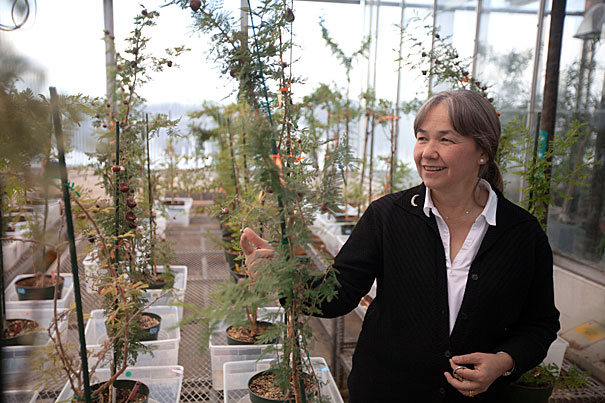
-
Cutting costs, buoying health care
A Harvard Medical School lecturer and former head of the federal agency overseeing Medicare and Medicaid shared his experiences pushing for improved health care quality, saying that teamwork, cost curtailment, and a focus on patients are keys to success.

-
Go with your gut
Peter Turnbaugh and co-authors Corinne Ferrier Maurice and Henry Joseph Haiser show that as drugs are administered, the activity of human gut microbes can change dramatically. Understanding how those changes affect drug chemistry could help researchers to design drugs that work more effectively and antibiotics that more specifically target pathogens.
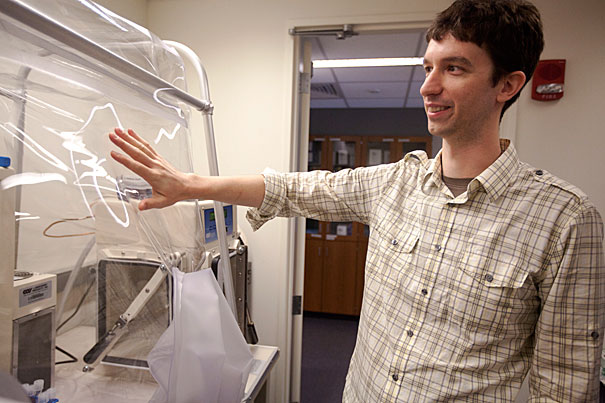
-
Astronomically close
Earth-like planets potentially capable of supporting life may be right in our galactic neighborhood, according to researchers from the Harvard-Smithsonian Center for Astrophysics and the California Institute of Technology.

-
‘Sunshine vitamin’ looks a little brighter
Adequate levels of vitamin D during young adulthood could cut the risk of adult-onset type 1 diabetes by as much as 50 percent, according to new findings by researchers at the Harvard School of Public Health.

-
Worldwide, women’s inequality
A U.N. official said Thursday that the world has made progress in reducing poverty and in meeting some of its eight Millennium Development Goals, but that entrenched inequality of women will slow efforts to meet equality and maternal mortality targets by 2015.

-
Before takeoff
Professor Arkhat Abzhanov explored links between dinosaurs and birds in talk kicking off a five-part series called “Evolution Matters.” The next lecture is scheduled for Feb. 12.
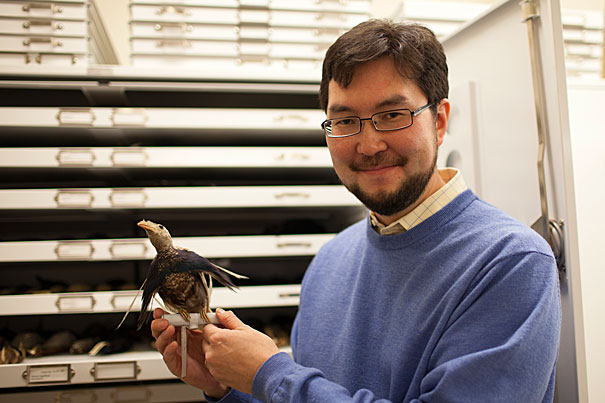
-
Winning war against ‘superbugs’
A team of scientists gained some critical intelligence, not by designing a new antibiotic, but by interfering with the metabolism of the bacterial “bugs” — E. coli in this case — and rendering them weaker in the face of existing antibiotics.

-
Hitting malaria from all sides
The Harvard Malaria Forum explored the status of the global fight against malaria, focusing on how businesses can aid government and nonprofit efforts against the global killer.

-
Fighting a global menace
Students at the Harvard School of Public Health are joining forces to draw attention to World Cancer Day on Feb. 4, organizing a symposium of experts to talk about the problem and collecting signatures for a declaration of cancer-related global health priorities.

-
Doctors can feel their patients’ pain
A novel experiment illuminates the importance of the doctor-patient relationship, providing the first data into the underlying neurobiology of the caregiver.
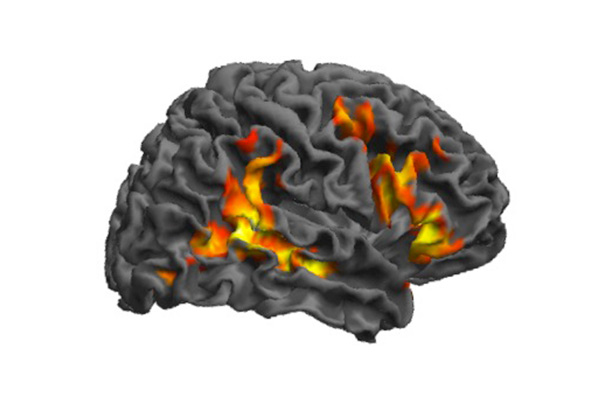
-
HMS partners with NFL Players Association
he National Football League Players Association (NFLPA) has awarded Harvard Medical School a $100 million grant to create a transformative 10-year initiative — Harvard Integrated Program to Protect and Improve the Health of NFLPA Members.

-
Watching teeth grow
For more than two decades, scientists have relied on studies linking tooth development in juvenile primates with their weaning as a rough proxy for understanding similar landmarks in the evolution of early humans. New research from Harvard, however, challenges that thinking by showing that tooth development and weaning aren’t as closely related as previously thought.

-
Mutations drive malignant melanoma
Two mutations that collectively occur in 71 percent of malignant melanoma tumors have been discovered in what Harvard scientists call the “dark matter” of the cancer genome, where cancer-related mutations haven’t been previously found.

-
New avenue in neurobiology
Harvard stem cell biologists have proven that it is possible to turn one type of already differentiated neuron into another inside the brain, and their findings may have enormous implications for the treatment of neurodegenerative diseases.

-
A hidden genetic code
For decades, scientists wondered whether there was some subtle difference between parts of the genetic code that, while different, appear to encode the same amino acid. Harvard researchers now have the answer.

-
Plant power
The world we live in was made possible by the precursors to plants, which crossed two evolutionary hurdles that transformed not only plant life, but also the Earth’s atmosphere and its once-barren continents, Arnold Arboretum Director William Friedman said in a recent lecture.
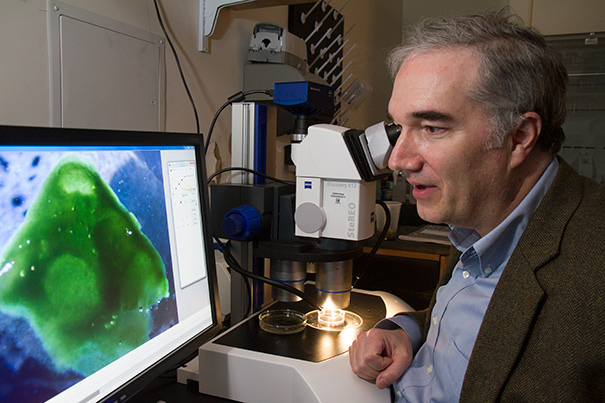
-
Digging yields clues
As described in a Jan. 16 paper in Nature, a team of researchers led by Hopi Hoekstra, professor of organismic and evolutionary biology and molecular and cellular biology, studied two species of mice – oldfield mice and deer mice – and identified four regions in their genome that appear to influence the way they dig their burrows.

-
In Africa, success against AIDS
AIDS researchers gathered at the Harvard School of Public Health to mark 10 years of work under a landmark federal anti-AIDS program that has led to significant progress against the epidemic.

-
‘Whole grain’ not always healthy
U.S. Department of Agriculture’s 2010 Dietary Guidelines recommend that Americans consume at least three servings of whole-grain products daily, and the new U.S. national school lunch standards require that at least half of all grains be whole-grain rich. However, no single standard exists for defining any product as a “whole grain,” according to a Harvard School of Public Health study.

-
Pill-sized device rivals endoscopy
Physicians may soon have a new way to screen patients for Barrett’s esophagus, a precancerous condition usually caused by chronic exposure to stomach acid. Harvard researchers at the Wellman Center for Photomedicine at Massachusetts General Hospital have developed an imaging system enclosed in a capsule about the size of a multivitamin pill that creates detailed, microscopic images of the esophageal wall.

-
Looming malpractice
The average physician will spend more than 10 percent of his or her career facing an open malpractice claim. Some specialists will spend upwards of 27 percent.



